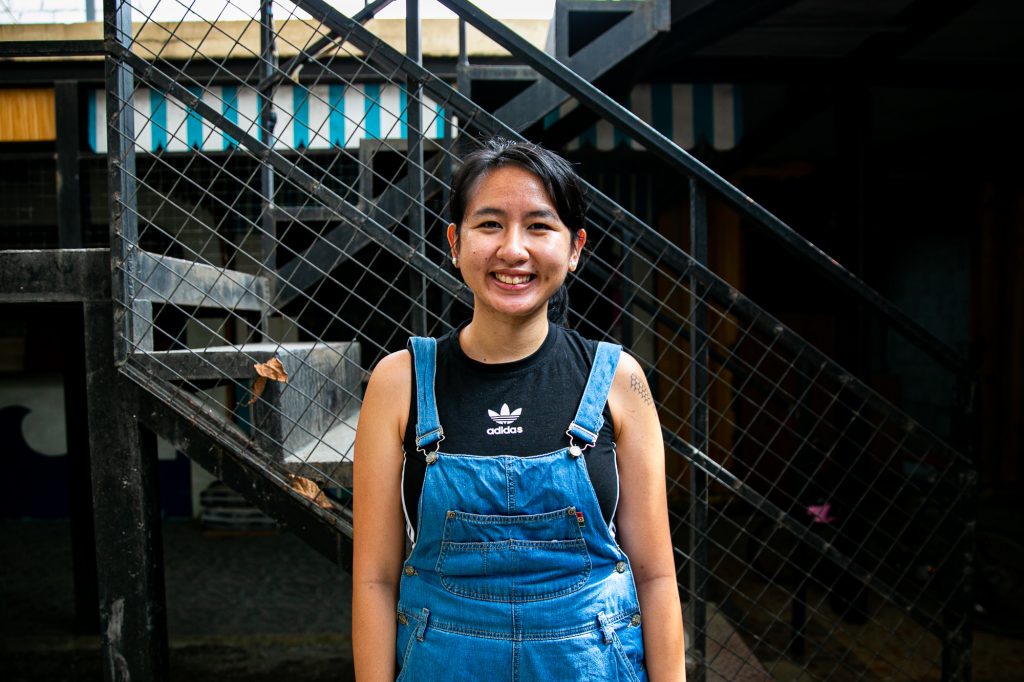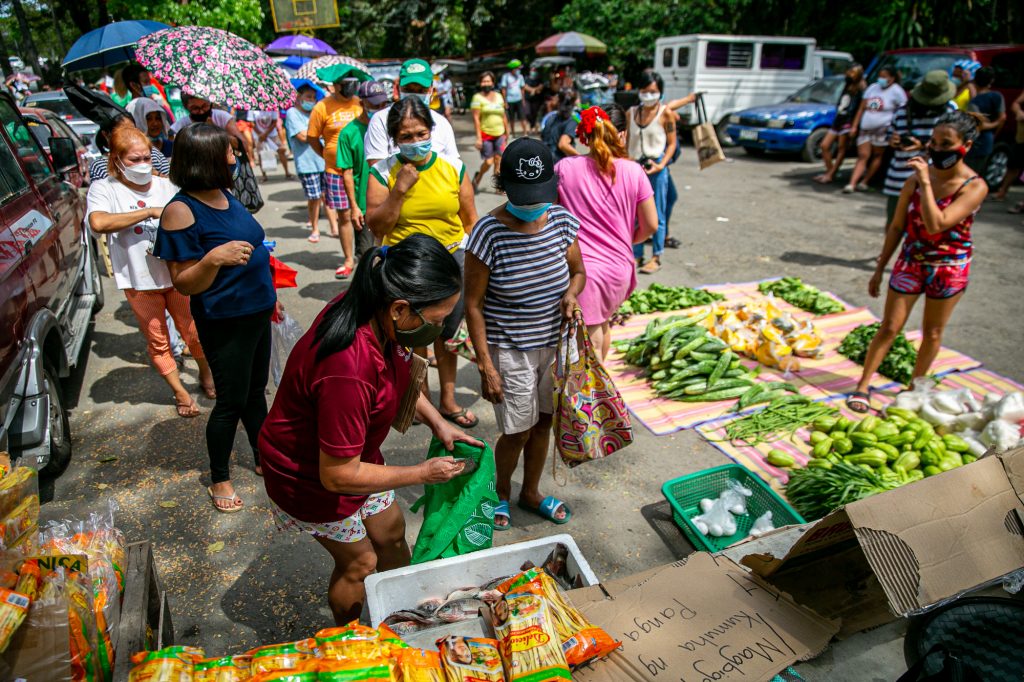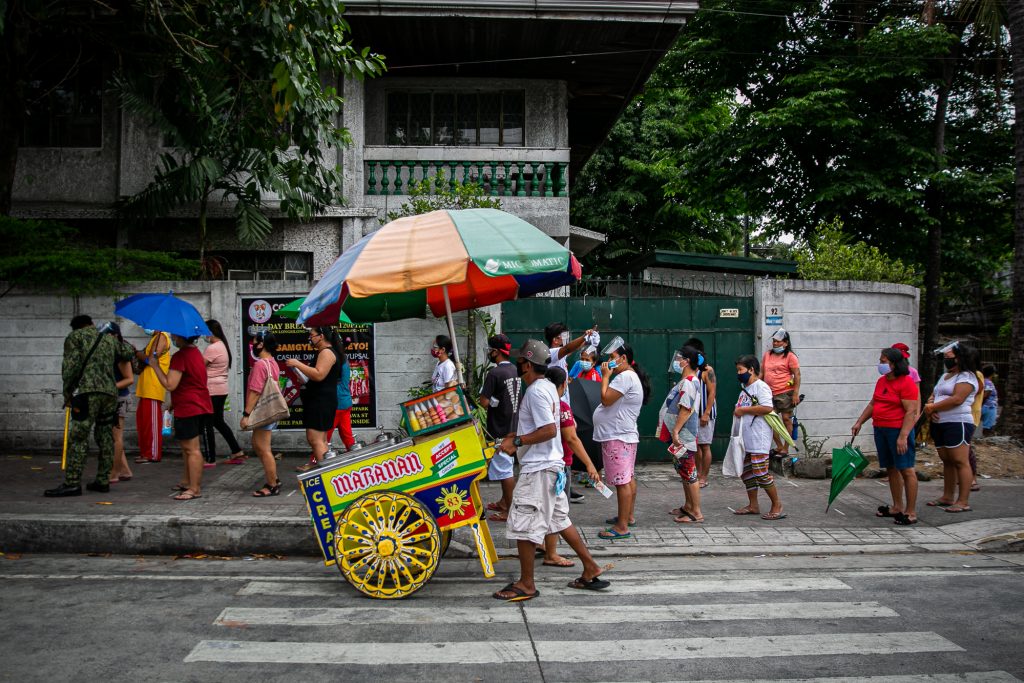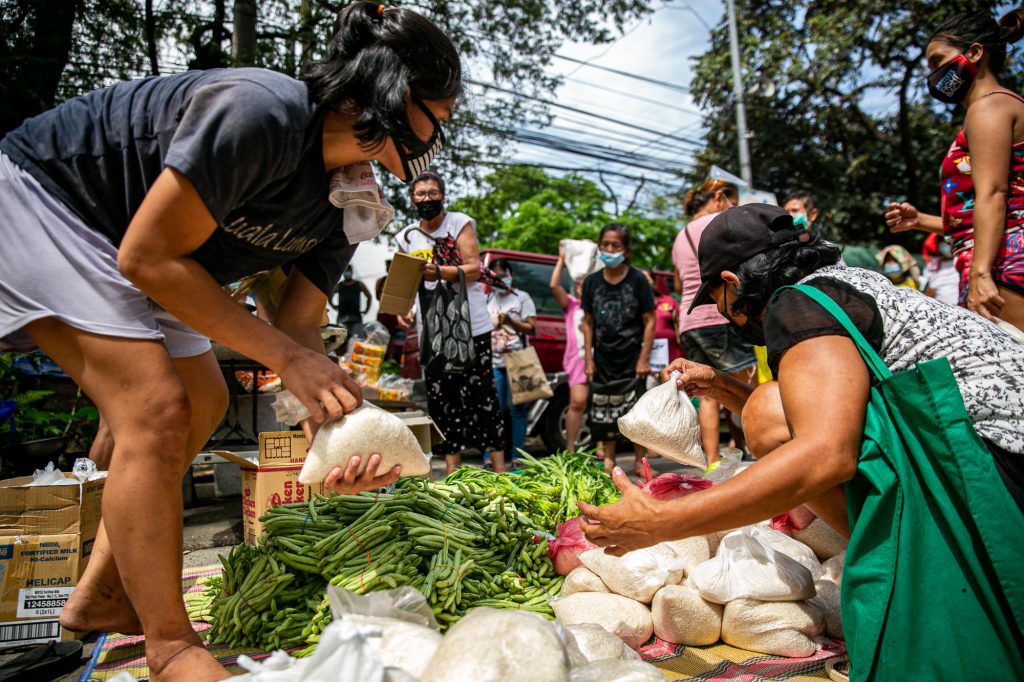
The public praised her for turning a sidewalk into a place where people in need and those willing to help meet.
On April 14, Ana Patricia Non placed a cart made of bamboo loaded with food items on the sidewalk along Maginhawa Street in Quezon City in the Philippine capital.
A few hours after posting a photo on her social media account, people began sending donations and residents of a nearby urban poor community came for the goods.
Patricia’s act was replicated in many places. People started to ask why there are so many people suffering from hunger.
Then she attracted the attention of the government’s anti-insurgency task force who tried to link her to the underground communist movement.
The so-called “community pantry” might be part of a bigger communist-led conspiracy to lure the public to rise up against the government, said spokespersons of the National Task Force to End Local Communist Armed Conflict.
“Why are these ‘community pantries’ sprouting all over all of a sudden? Why do they have a single theme?” said Lt. Gen. Antonio Parlade Jr., spokesman of the task force.
“You know, that’s just one person, Ana Patricia, isn’t it? Satan gave an apple to Eve, that’s how it started,” said the military official.
Patricia, or Patreng to her friends, tried to ignore the attacks. She, however, admitted that she feared for her safety and the lives of the other volunteers.
“We all know what happened to other people who have been subjected to ‘red-tagging.’ A lot of them were harassed and some were even killed,” she said.
She said she could not understand why military officials would think that helping other people overcome hunger is a communist act.
“The concept of the pantry is very basic. People in the past already did it. From each according to his ability, to each according to his needs,” said Patricia.
She said it is the same principle when Jesus fed thousands of people with seven loaves of bread and two fishes.

“There was nothing dubious about the ‘community pantry,’” said the Fine Arts graduate of the University of the Philippines.
“It was just a simple idea to encourage everyone to accept and give mutual aid from the community,” she said.
Nearly two weeks after Patricia started her “community pantry,” more than 500 others have sprouted across the country.
The initiative even inspired people in Timor Leste to set up their own “community pantries.”
Caritas Philippines, the social action arm of the Catholic Church in the country, has called on dioceses to reactivate or set up their own aid stations to support the “community pantries.”
Patricia said she does not want the limelight on her. She credited the people and the communities for making the campaign against hunger possible.
“The narrative that we must tell is the narrative of the people who choose to give and share whatever spare they may have, and the story of the poor people who are struggling to stay alive amidst the pandemic,” she said.

“This is not about me,” said the furniture maker. She said she set up a “mutual aid station” after she was forced to temporarily close down her small furniture shop due to the pandemic.
Her workers came to her for assistance a week after the lockdown in the Philippine capital. She sold her bicycle to give them some cash.
“I can survive for a few months. I just need food, stay healthy, and avoid being infected with the coronavirus disease. But I was anxious about my workers,” said Patricia.
Her “community pantry,” however, saved the day for Ronaldo Abcede, a 48-year-old worker who lost his job after his company closed in December.
Ronaldo lined up at the “pantry” to get some fruits and vegetables, and a kilogram of rice, which he said is “just enough” to feed his four small children for two days.
Before leaving the pantry, he left two cans of sardines that he got from a government relief distribution program.
“Fruits and vegetables are healthier for my children,” he said. “We have been eating sardines and instant noodles almost everyday since I lost my job,” said Ronaldo.
The man is one of the many compelling reasons why Patricia decided to continue what she started.

“I don’t have the sharpest line or the brightest idea, but I always make sure that I learn from the masses and put them at the center in everything that I do,” she said.
Bishop Jose Colin Bagaforo, national director of Caritas Philippines, said Patricia’s initiative “brings out the innate generosity, kindness, and compassion in everyone.”
From the small bamboo cart on Maginhawa Street, Patricia was able to set up nine other “pantries” that serve hundreds of poor families every day.
She admitted that the “community pantry” is “not the solution” to poverty or to end hunger, “but it can teach us how to take care of our own people.”
Source: Licas Philippines
0 Comments